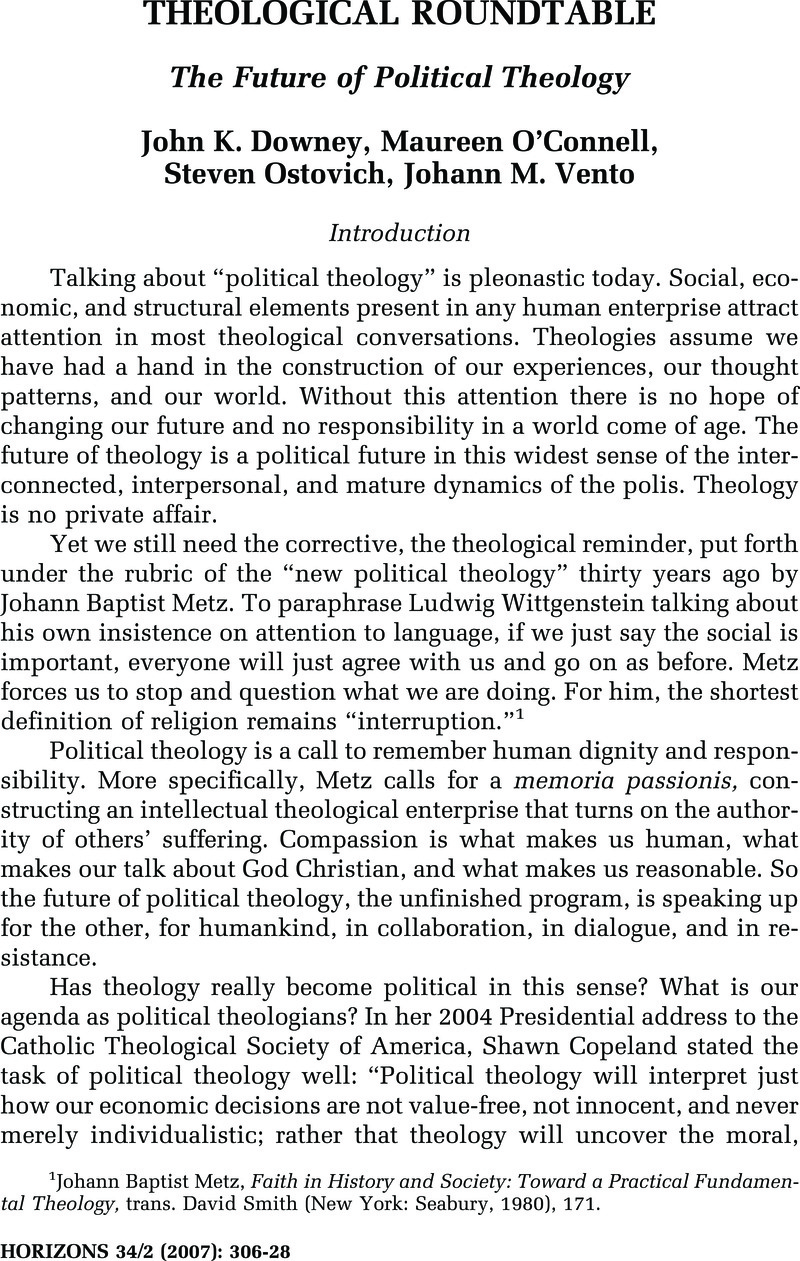No CrossRef data available.
Published online by Cambridge University Press: 18 March 2013

27 Benjamin, Walter, “N [On the Theory of Knowledge, Theory of Progress]” The Arcades Project, ed. Tiedemann, Rolf, trans. Eiland, Howard and McLaughlin, Kevin (Cambridge, MA: Belknap Press, 1999), 471.Google Scholar
28 See Benjamin, Walter, “On the Concept of History,” in Walter Benjamin: Selected Writings, vol. 4, 1938–1940, ed. Eiland, Howard and Jennings, Michael W., trans. Jephcott, Edmund and others (Cambridge, MA: Belknap Press, 2003), 389.Google Scholar
29 Metz, Johann Baptist, “The Future in the Memory of Suffering,” in New Questions on God, ed. Metz, Johannes B., Concilium 76 (New York: Herder and Herder, 1972), 15.Google Scholar
30 See, for example, Ostovich, Steven T., “Epilogue: Dangerous Memories,” in The Work of Memory: New Directions in the Study of German Society and Culture, ed. Confino, Alon and Fritzsche, Peter (Urbana, IL: University of Illinois Press, 2002), 239–56Google Scholar; and “Melancholy History,” in Missing God?, 93–101.
31 See, for example, Vento, Johann M., “Violence, Trauma, and Resistance: A Feminist Appraisal of Metz's Mysticism of Suffering unto God,” Horizons 29 (2002): 7–22CrossRefGoogle Scholar; idem, “Not in Vain: Memoria Passionis and Violence against Women,” in Missing God, 79–92; and her essay, below.
32 See Fraser, J. T., Time, Conflict, and Human Values (Urbana, IL: University of Illinois Press, 1999).Google Scholar
33 Arendt, Hannah, The Human Condition, 2nd ed. (Chicago: University of Chicago Press, 1998 [1st ed., 1958]).CrossRefGoogle Scholar
34 Agamben, Giorgio, Homo Sacer: Sovereign Power and Bare Life, trans. Heller-Roazen, Daniel (Stanford, CA: Stanford University Press, 1998).Google Scholar